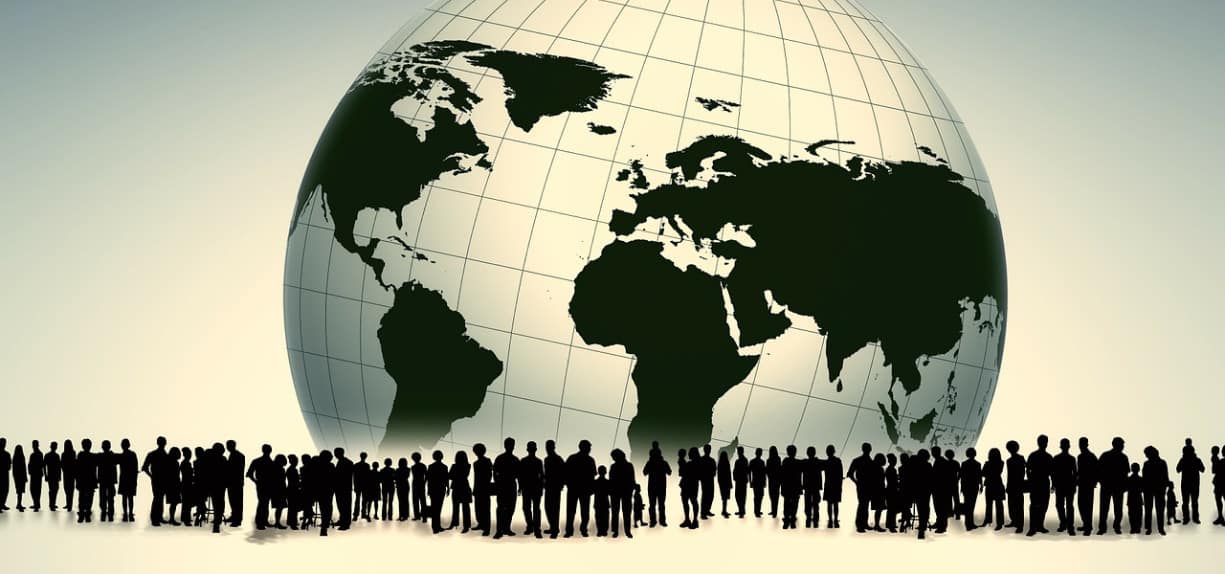As each decade passes, Ireland has continued to become an increasingly diverse country writes Siobhan Sweeney, Diversity, Inclusion & Belonging, People Operations, HubSpot.
Note: This piece was originally published as a cover story in the December 2022 issue of Business & Finance magazine.

Siobhan Sweeney of Hubspot
Traditionally a country of emigration, a rapid shift of immigration during the economic boom has meant that the country has become considerably more diverse in several ways especially when it comes to nationality and ethnicity.
Diveristy in numbers
This diversity is furthermore grounded in the 2016 Census (The census is a detailed account of everybody who is in the country on Census Night). The results indicated that the 535,475 non-Irish nationals living in Ireland originate from over 200 different nations.
This breakdown of non-nationals includes:
- Polish nationals at 122,515
- 103,113 UK nationals
- 36,552 Lithuanians.
Overall, there are 12 nationalities with more than 10,000 residents living here in Ireland from America, Brazil, France, Germany, India, Italy, Latvia, Romania, and Spain, in addition to Poland, Lithuania, and the UK.
This breakdown represents the wealth of cultural differences now existing in Ireland.
As well as looking at nationality making Ireland’s population more diverse, immigrants to Ireland are enormously varied in their age profile, their socio-economic background, their religious beliefs and customs, and their proficiency in the English language.
The Central Statistics Office (CSO) released its preliminary results on 23 June 2022. The preliminary results show a population increase of 7.6% since 2016. This is the highest population increase recorded in a census since 1841.
The population increase estimated net inward migration of 190,333. More than ever before, our communities are continuously changing in terms of their composition.
The demographic changes are having a major impact across many spheres of life, including the workplace, communities, towns, sports, and schools.
Societies and individuals are facing new challenges as they engage with people from different backgrounds, faiths, and beliefs. These changes have had many positive effects – such as filling important gaps in the labour market.
Society is now forcing workplaces of today to move away from the once homogeneous cultures that existed.
Safe Workplaces
Psychological Safety is key within communities and workplaces to ensure we are consistently implementing change and challenging the status quo.
Are we doing enough as a country to create Psychological Safety?
Lauren Delizonna, describes Psychological Safety as the feeling that allows for moderate risk-taking, speaking your mind, asking the hard questions, being creative, and sticking your neck out – without fear of being judged, embarrassed, or shamed.
When looking at psychological safety from a work perspective, it is the result of practised behaviours that lead to a sense of belonging where team members feel comfortable bringing their full selves to work, knowing that their identities will be respected and valued.
It’s also important to call out that belonging is a feeling. Feelings are unique person to person, but always valid.
Psychological Safety is a result of practised behaviours. It’s a desired outcome or felt state when certain behaviours are practised and routinely actioned.
In a team with high psychological safety, teammates feel safe and confident that no one on the team will be embarrassed or punished for admitting a mistake, asking a question, or offering a new idea.
This very tangible, environmental state creates a sense community, and when there’s lots of people who share that same feeling of belonging, we have then created a culture.
Research from Harvard University has shown that there’s a real business impact to the importance of belonging and psychological safety, too.
Current industry trends show us that companies who have a high level of psychological safety see 76% more employee engagement, 50% more overall productivity, and 27% reduction in turnover.
Another recent study also showed that by prioritising psychological safety in an organisation, companies see 5 times more human capital, and an average of $4.3M in additional revenue, compared to companies without high psychological safety.
Harvard Professor of Leadership, and Psychological Safety pioneer Dr. Amy Edmondson says it best:
“Psychological safety and courage are two sides of the same (immensely valuable) coin. Both are, and will continue to be, needed in a complex and uncertain world.”
Many organisations in Ireland are seeing the benefits of introducing diversity, inclusion and belonging into their strategic priorities for multiple reasons, including:
Better Decision Making & Innovation:
International teams bring a variety of viewpoints from both personal and professional perspectives. The range of experience, expertise, and working methods that a diverse workplace offers can boost problem-solving and lead to greater productivity.
Multiple voices, perspectives, and personalities interacting off one another can give rise to out-of-the-box thinking.
Diversity of thought has been shown to breed creativity and drive innovation, helping to solve problems and meet customer needs in new and exciting ways.
By creating an environment that fosters psychological safety, businesses can reap the biggest benefits of sharing ideas. In fact, studies have shown organisations with a culture of diversity and inclusion are both happier and more productive.
Profitability:
When entering new markets or regions, a diverse workforce can give an organisation an important edge when expanding. Diverse teams can enable you to better understand local regulations, and customs, which can help a business to further develop.
In addition, local connections, native language, and cultural understanding can all assist in boosting business growth, ultimately meaning being more profitable.
Talent Attraction & Retention:
Companies that are making diversity and inclusion an integral part of their business are benefiting. By doing so, it allows organisations to broaden the talent pool of prospective candidates.
In a competitive global job market, potential talent wants companies to demonstrate that the business is invested and committed to fostering an inclusive culture for all to belong.
In a diverse workplace, employees are more likely to feel valued and respected therefore stay longer, improving retention rates and the cost associated with turnover.
Ireland has without doubt transformed over the last 50 years. We have paved a great way for future generations, however still so much work remains especially when it comes to diversity, inclusion and belonging within our Country.
If everyone did one thing to enhance change, we could continue to build a better culture. I look forward to continuously contributing to making much needed change this this area.
What is that one thing that you will do to create a better Ireland?
Diversity and ESG recognised at Business & Finance Awards 2022
Takeaways from The Business Show 2022: Business Leaders convene for in-person event



